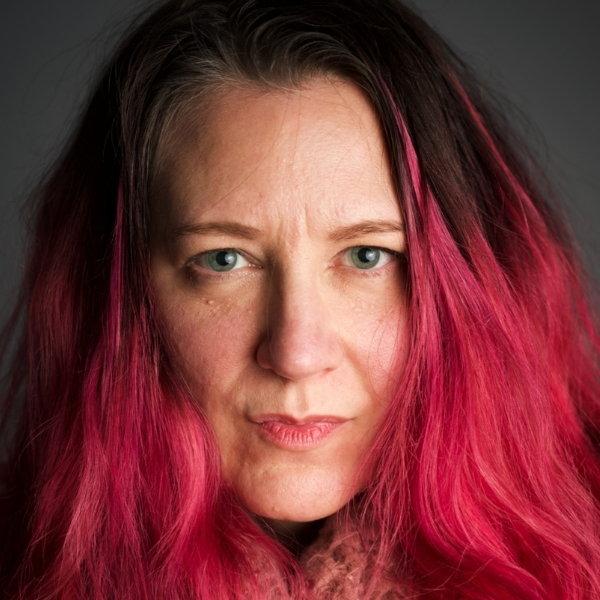.jpg)
I Love You From Elsewhere
Guilty pleasure takes on a different meaning when you’ve spent your life feeling guilty just for existing differently from the status quo.
Sure, I have the usual indulgences—chocolate, bath bombs that make me glow, the comfort shows I’ve watched more times than I’ll admit. But when you’ve been made to feel wrong simply for being different, “guilty pleasure” starts to mean something else entirely.
This month’s letter comes from The Friend Who Loves You, From Elsewhere.
Dear Cami,
I have a lot of friends who love being around people. They host parties, go to trivia nights, and plan group dinners. They keep inviting me, and I keep inventing reasons not to go.
The thing is, I genuinely adore my friends. I just don’t enjoy parties. As soon as there are more than a couple of people in a room, all I can think about is how long I have to stay before it’s polite to leave.
I always feel like I’m letting them down. Like I’m the bad friend who never shows up. How do I explain that I’m not antisocial, I just don’t thrive in groups, without hurting their feelings?
Dear The Friend Who Loves You, From Elsewhere,
Oof. It’s like I’m writing back to a mirror today. I’ve spent too much of my life feeling guilty for not wanting to do what everyone else seems to love. There’s a big gap between how people show love and how they receive it. For a long time, I was the queen of canceling plans. Not because I didn’t care, but because I felt too guilty to say no in the first place.
Once, a friend invited me to one of her endless house parties. We negotiated my attendance like diplomats: how long I’d stay, how many people I’d talk to. I went. Dragged my partner with me. Stayed exactly one hour. It was hell. That was the last “party” I attended. And the last one I agreed to.
We all do things we don’t love to keep life moving: work, family, community. But why are parties treated like a moral obligation? People who love crowds can’t fathom how anyone could feel differently. And when you’re the friend who doesn’t, it’s easy to believe you’re the problem.
You’re not.
There’s a particular kind of relief in staying home. Not lazy, not flaky, just the quiet exhale after hours of holding your breath. The world keeps insisting that connection happens out there in the crowd, the clatter, the crush of people. But some share our best love from elsewhere.
How do we make people understand that?
Unfortunately, we have to tell them. We have to actually spell it out. And it’s not just an issue for neurodivergent folks. Plenty of people struggle with big gatherings. It’s just that when the culture says “party = fun,” opting out looks like heresy.
I’ve always wanted to respond to party invitations by asking if the host wants to come help me clean my crawlspace instead. At least then we’d be suffering together. I know you want to spare their feelings, but sometimes the kindest thing you can do for yourself is stop cushioning the truth.
If you’ve already said that crowds are hard for you, and they keep pushing, it’s time for honesty. A friendship isn’t real if you can’t be yourself in it. Try this:
“I know you want me there, but crowds drain me. Going would mean abandoning myself just to make other people comfortable.”
That line may sting a little, but it’s true, and it’s enough.
Staying home isn’t a flaw or a failure. It’s my favorite guilty pleasure. And I’ve stopped feeling bad about loving people from elsewhere.
These days, I think of Elsewhere not as a distance but as a home. It’s where my nervous system finally unclenches, where I can love people without performing for them. It’s the quiet room inside the noise, the sanctuary I built from honesty.
If that’s a guilty pleasure, I’ll take the guilt. The pleasure’s finally mine.
This column only exists because of your letters. Got a messy, tender, or impossible question? Good. That’s the kind I want. Ask me.
Cami Kaos is a writer, autistic woman, and former tech community organizer who spent more than a decade building inclusive spaces in an industry that rarely made room for people like her. After burning out from constant caretaking and code-switching, she turned inward—to reclaim the parts of herself that were silenced to make others comfortable. Cami writes about identity, survival, and neurodivergence—not always without apology, but with growing conviction. These days, she’s not interested in holding it all together anymore—just holding what matters. You can find Cami at camikaos.com. Bring snacks.

Lorem ipsum dolor sit amet, consectetur adipiscing elit. Suspendisse varius enim in eros elementum tristique. Duis cursus, mi quis viverra ornare, eros dolor interdum nulla, ut commodo diam libero vitae erat. Aenean faucibus nibh et justo cursus id rutrum lorem imperdiet. Nunc ut sem vitae risus tristique posuere.
Lorem ipsum dolor sit amet, consectetur adipiscing elit. Suspendisse varius enim in eros elementum tristique. Duis cursus, mi quis viverra ornare, eros dolor interdum nulla, ut commodo diam libero vitae erat. Aenean faucibus nibh et justo cursus id rutrum lorem imperdiet. Nunc ut sem vitae risus tristique posuere.